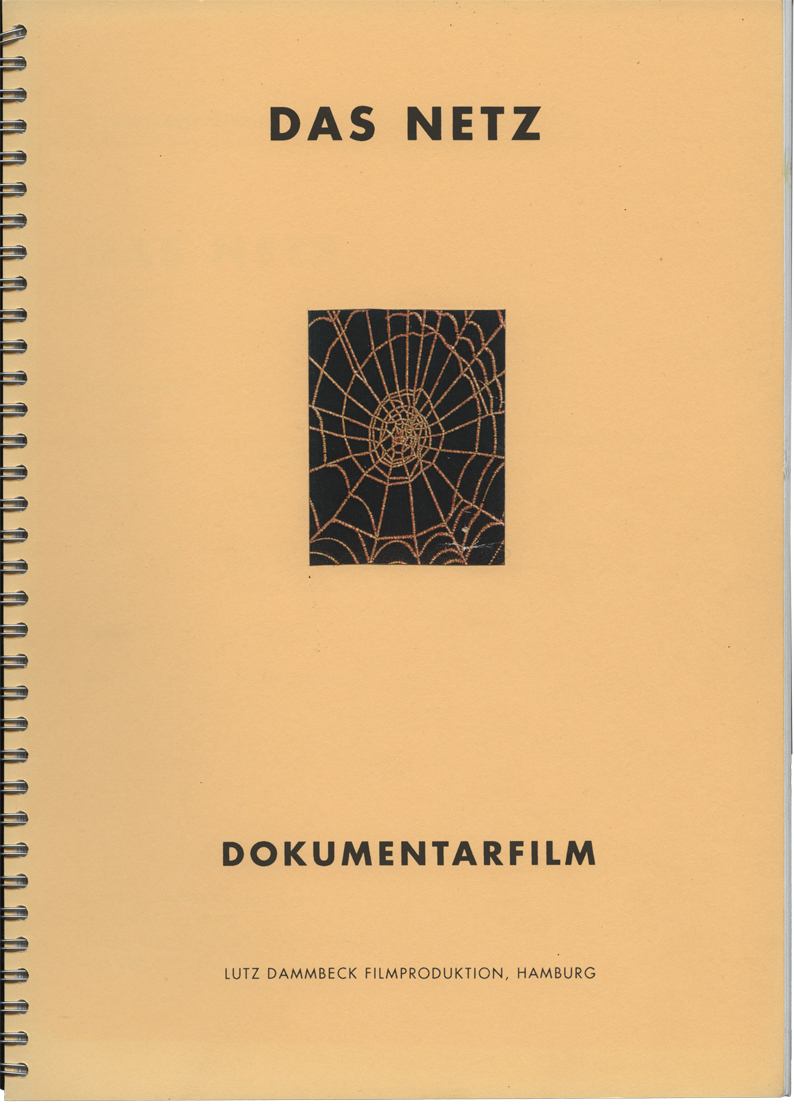Lutz Dammbeck: Das Netz (2003) [German]
Filed under screenplay | Tags: · computing, critique of technology, cybernetics, history of computing, history of technology, machine, silicon valley, technology

“1930 erschüttert der Wiener Mathematiker Kurt Gödel mit seinen Unvollständigkeitssätzen die Grundlagen der Mathematik. 1968 arbeitet der Physiker und Ingenieur Heinz von Foerster in seinem Biological Lab an der Universität von Illinois an der Verschmelzung von digitalen und biologischen Systemen. 1995 verhaftet das FBI in der Wildnis Montanas den ehemaligen Mathematik- professor Theodore J. Kaczynski als den „Unabomber“. Was verbindet diese Personen, Orte und Ideen zu einem Netz? Die Suche nach einer Antwort führt zurück in die 40er bis 60er Jahre des vergangenen Jahrhunderts, wo sich in Wissenschaft, Kunst und Technologie die Horizonte nach allen Seiten zu öffnen scheinen. Mit Kybernetik, Multimediakunst und militärischer Forschung werden die Fundamente der Moderne neu gesetzt. Das wird die Basis für heute weltweit vernetzte Maschinensysteme, die von Mathematik, Logik und binären Codes bestimmt werden. „Das Netz“ zeigt Konstrukteure, Maschinisten und Agenten dieser Systeme. Einer steigt aus, und versucht die Maschinen zu stoppen. Aber um welchen Preis.”
28 pages
PDF (30 MB, updated on 2020-4-17)
JPG
John Zerzan, Alice Carnes (eds.): Questioning Technology: Tool, Toy or Tyrant? (1991)
Filed under book | Tags: · artificial intelligence, communication technology, computing, critique, history of technology, marxism, silicon valley, technology

“The rich array of commentators in this anthology looks at the way technology is waven into the fabric of our lives, and asks: is this what we really want? Questioning Technology is sharp, eloquent, and provocative.
Some of the writers fully intend to shake us up. Russell Means’ essay “Fighting Words on the Future of the Earth” is an inspired case in point. Some suggest solutions: Carolyn Merchant’s “Death of Nature” advocates a restructuring of our priorities in favor of decentralization, “soft” and labor-intensive technologies, and simpler lifestyles. All the contributors face the consequences of our technology-dependency unflichingly and often wittily.
Questioning Technology is an impassioned plea for us to think before we act – and to know that we can, if we want to, ‘unplug ourselves.'”
Publisher New Society Publishers, Philadelphia, PA, Santa Cruz, CA, and Gabriola Island, BC, 1991
ISBN 0865712042, 9780865712041
222 pages
PDF (no OCR; updated on 2012-8-4)
Comment (0)Fred Turner: From Counterculture to Cyberculture. Stewart Brand, the Whole Earth Network and the Rise of Digital Utopianism (2006)
Filed under book | Tags: · collaboration, counterculture, cyberculture, cybernetics, history of communications, history of computing, internet, silicon valley, technology, virtual communities, web, wired

“In the early 1960s, computers haunted the American popular imagination. Bleak tools of the cold war, they embodied the rigid organization and mechanical conformity that made the military-industrial complex possible. But by the 1990s—and the dawn of the Internet—computers started to represent a very different kind of world: a collaborative and digital utopia modeled on the communal ideals of the hippies who so vehemently rebelled against the cold war establishment in the first place.
From Counterculture to Cyberculture is the first book to explore this extraordinary and ironic transformation. Fred Turner here traces the previously untold story of a highly influential group of San Francisco Bay–area entrepreneurs: Stewart Brand and the Whole Earth network. Between 1968 and 1998, via such familiar venues as the National Book Award–winning Whole Earth Catalog, the computer conferencing system known as WELL, and, ultimately, the launch of the wildly successful Wired magazine, Brand and his colleagues brokered a long-running collaboration between San Francisco flower power and the emerging technological hub of Silicon Valley. Thanks to their vision, counterculturalists and technologists alike joined together to reimagine computers as tools for personal liberation, the building of virtual and decidedly alternative communities, and the exploration of bold new social frontiers.
Shedding new light on how our networked culture came to be, this fascinating book reminds us that the distance between the Grateful Dead and Google, between Ken Kesey and the computer itself, is not as great as we might think.”
Publisher University of Chicago Press, 2006
ISBN 0226817415, 9780226817415
x+327+16 pages
Review: Samuel Goëta (Questions de communication, 2013, FR).
PDF (updated 2019-2-25)
Comment (0)
